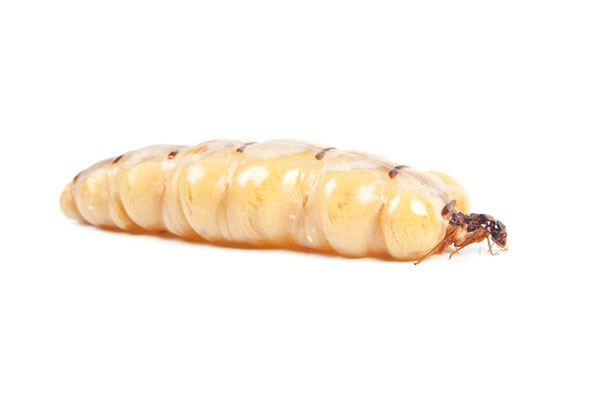The termite queen decides the size, makeup and division of each termite colony. Find out everything you need to know about termites and termite queens.

Every year, termites inflict around $5 billion in property damage. Termites sneaking into your home can cost you thousands in treatments and damage repairs.
Who leads these tiny homewreckers in their charge to claim every ounce of wood they can? Termite queens.
Q: What are termite queens?
A: The queen controls the colony size, makeup and division of labor of a termite colony. She is also the primary egg layer in termite colonies.
Q: Is the queen the only egg layer?
A: Queen termites can actually suppress the development of other queens with pheromones that are always associated with their presence.
When the colony gets larger, she may need to allow a small number of the termite nymphs to develop as supplemental or secondary queens. This will help provide sufficient eggs for the colony to continue to grow.
Q: What is the egg-laying process like?
A: The queen termite's abdomen enlarges as she begins laying eggs. Her abdomen eventually expands many times beyond her prenuptial size to the point that she becomes much less mobile and must be cared for.
She becomes an egg-laying machine and becomes physically dependent on the worker termites for her care and feeding.
Q: If queens don't move much, how do termite colonies spread?
A: After three to five years, the queen may decide to allow many of the nymphs to develop into alates (winged reproductive adult termites) who will swarm out of the nest to try to start a new colony.
Several hundred to several thousand will swarm from the nest, but most will not succeed.
After the swarming, a male and a female worker will pair up and the soon-to-be termite queen will look for a place to make a nest.
The new nest site must provide near-perfect conditions for the new termite queen and king to survive. This is very unlikely in a properly maintained home.
Q: How do I stop termite queens?
A: The first step is understanding termite behavior and knowing how to keep an eye out for termites and/or termite damage.
Effective termite control is best left to trained specialists. Termites are complicated creatures, sometimes with several colonies and nests in multiple locations on a single property.
Trained specialists will bring the most up-to-date training and tools to the battle against termite queens and their colonies.


